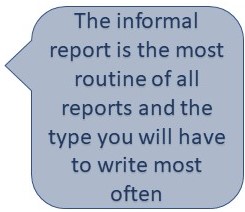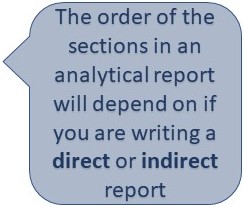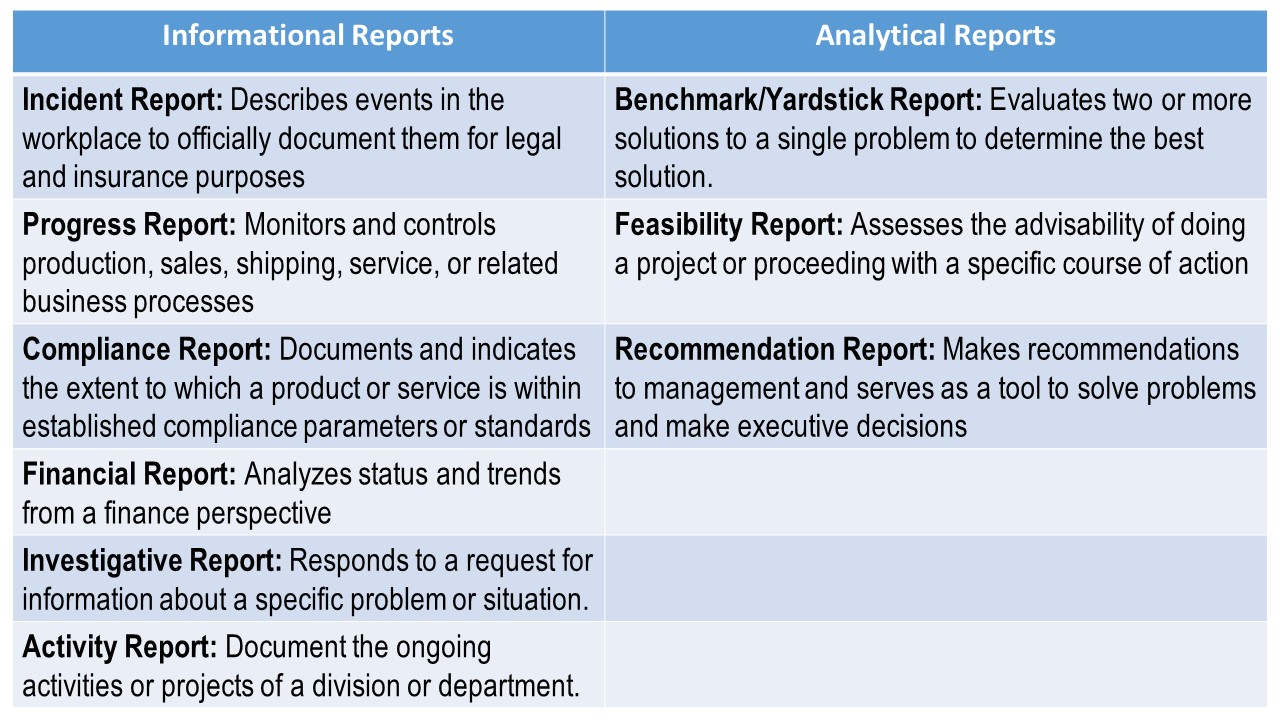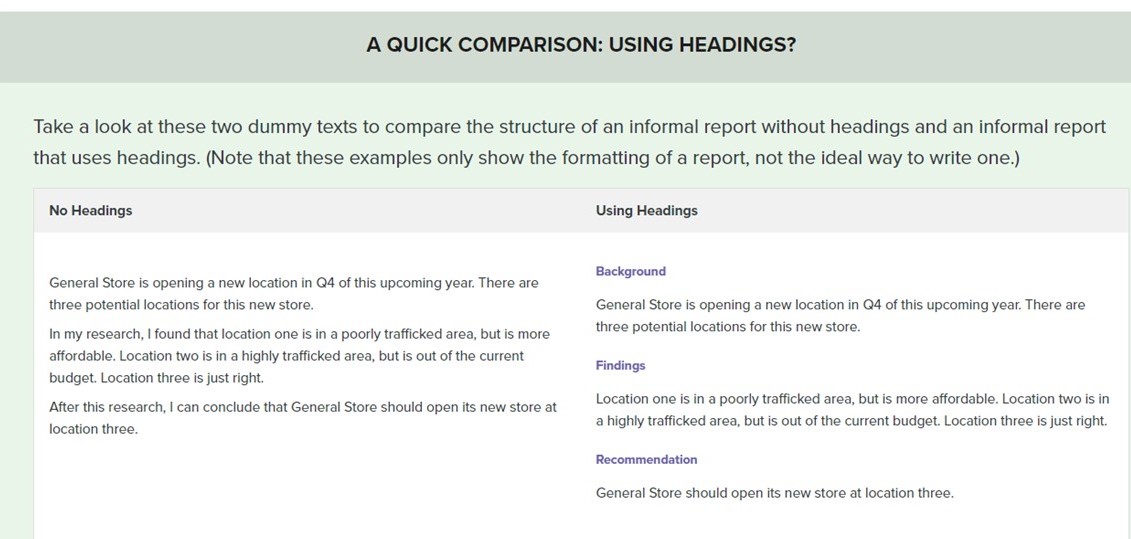5.3 Report Type and Function: Informal Report
Learning Objectives
 After studying this unit, you will be able to
After studying this unit, you will be able to
-
-
- identify different types of reports
- Identify the different functions of reports
-
Introduction
Depending on the complexity and depth of content, reports are categorized as either informal or formal. Whatever the type, all reports provide the information that people in an organization need to solve problems and make decisions.

The informal report is 10 pages or under, and for this reason, informal reports are also referred to as the short report. Informal reports can have both an internal and external audience, but are mostly written for an internal audience. For internal audiences, the informal report is constructed as a memo or email report; for the external audience, the informal report is constructed as a letter or email report.
In addition, the informal report can be informational or analytical in nature. The informational report contains non-sensitive, routine information, often presented in a prescribed format such as a fill-in-the-blank form. For this reason, the sections of an informational report include the introduction, findings, and conclusion. In contrast, the short analytical report seeks to answer questions about specific problems with the aim of solving those problems. How can we use social media more effectively? Should we close or open a new plant? How can customer service be improved? Therefore, the short analytical report not only includes an introduction, findings, and conclusion, but also recommendations.
Short Informational Reports
|
Short Analytical Reports
|

Informal Report Types and Functions
The video above provides a general overview of the short report. In your professional life, you will find that there are many different types of short reports to respond to the many different activities, duties, and responsibilities in business organizations. Table 22.2 below provides an overview of numerous types of short reports and their functions.
Table 5.3.4 Types and Function of Informal Reports

Labels and Section Headers
Although the informal report is short, any document that is two pages or longer should include a feature that helps to separate information into unique sections. Utilizing headers for any report in excess of 2-pages creates a better organized report and assists readers to understand, locate, and retain information.2

Exercise
 1. Select one of the following questions on which to base a report, and create an outline that contains functional and descriptive headings.
1. Select one of the following questions on which to base a report, and create an outline that contains functional and descriptive headings.
-
-
- Should online retailers compile customer profiles to help market their products?
- Do people over 40 suffer ageism in the IT industry?
- Can contemporary pop-up stores play a role in the marketing of new products?
-
2. Review a long business article in a journal or newspaper. Highlight examples of how the article uses headings, transitions, previews, and reviews to help readers find their way.
References
#1 Bovee, C., Thill, J., & Scribner, J. (2016). Business communication essentials (4th ed.). Toronto, ON: Pearson Canada Inc. Retrieved from http://www.pearsoncanada.ca/highered/product-showcase/new-solutions-for-core-foundations-from-pearson-canada/business-communication-essentials-fourth-canadian-edition-4e
GreggLearning. (2019). Guidelines to writing short business reports [Video]. Youtube. Retrieved from https://www.youtube.com/watch?v=TW-1aan4nFs
#2 Guffey, M., Loewry, D., Rhodes, K., Rogin, P. (2016). Business communication: Process and product (5th ed.). Toronto, ON: Nelson Education. Retrieved from http://www.cengage.com/cgi-wadsworth/course_products_wp.pl?fid=M20b&product_isbn_issn=9780176531393&template=NELSON
#3 Lumen (n.d.). Informal reports. Business communications skills for managers. Retrieved January 12, 2020 from https://courses.lumenlearning.com/wmopen-businesscommunicationmgrs/chapter/informal-reports/
#2 Meyer, C. (2017). Communicating for results (4th ed.). Don Mills, ON: Oxford University Press. Retrieved from https://oup-arc.com/access/meyer-4e-student-resources#tag_case-studies

